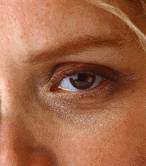
FRIDAY, Feb. 25 (HealthDay News) — Depression symptoms increase over time for women in their 30s and 40s who are prone to addiction problems and antisocial behavior, researchers report.
The new study looked at how personal history, family life and neighborhood instability affected alcoholism symptoms in 273 women over a 12-year period during their early years of marriage and motherhood. The participants lived in the U.S. Midwest.
While alcohol problems and antisocial behavior declined over time, depression symptoms increased among the women. The study also found that the women’s partner’s and children’s problems also had an effect on them. For example, women’s symptoms and behaviors worsened if their partner also struggled with addiction and antisocial behavior, such as trouble with the law.
And negative behaviors in their children, such as acting out and getting into trouble, tended to increase the mothers’ alcohol problems and antisocial behavior. In addition, the mothers’ depression increased when children were sad or isolated.
The researchers also found that the women’s alcoholism and depression levels were higher if they lived in an unstable neighborhood, where residents frequently moved in and out.
The study was published in the current online edition of the journal Development and Psychopathology.
“Our findings demonstrate the complexity of the factors affecting changes in alcohol problems, antisocial behavior and depression for these women,” senior author Robert Zucker, a professor of psychiatry and psychology at the University of Michigan Medical School and director of the U-M Addiction Research Center, said in a University of Michigan Health System news release.
The results challenge the common beliefs that these disorders are either just genetic disorders or caused solely by environmental factors.
“It’s really the network of these relationships — at the biological, social and at the community level — that influences these disorders over time,” Zucker said.
More information
The U.S. National Institute of Mental Health has more about depression in women.

